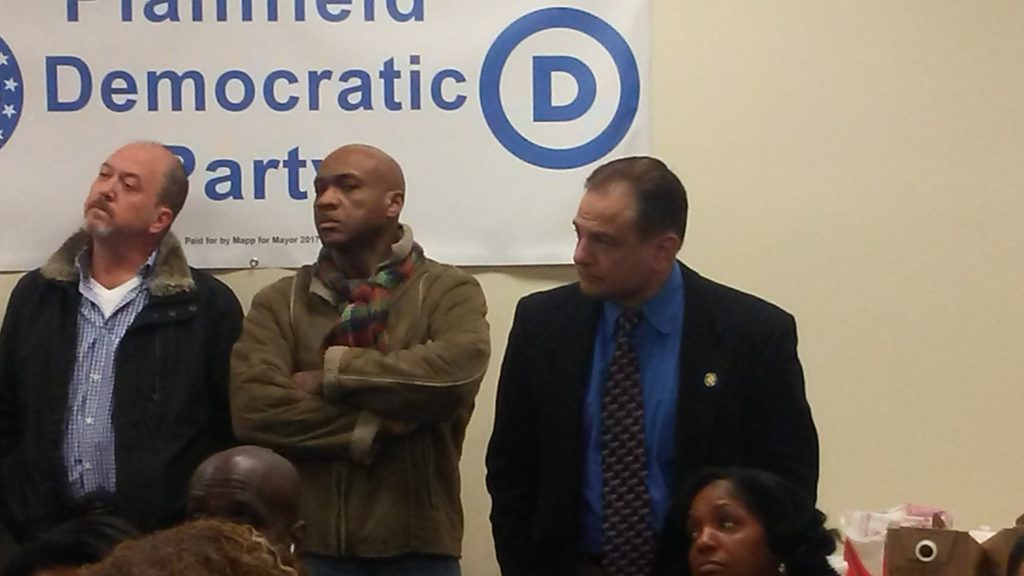Will Murphy Heed Scutari?

When Senate President Nick Scutari, (D-Union), in a recent appearance at Rowan University, attributed Democrats’ surprisingly poor showing in last year’s election to being “off mainstream,” speculation arose over whether he was engaging in introspective idle musing about the meaning of life or sending a coded message to Gov. Phil Murphy to dial down touting his progressive credentials if his legislative agenda is to be successful.
With Murphy at the top of the ticket and scraping by with a three-point victory, Democrats lost a net of seven legislative seats — six in the Assembly and one in the Senate — including the upset of Scutari’s immediate predecessor Steve Sweeney.
The national discontent with the Biden Administration no doubt played a role in the Democrats’ dismal performance here last year, but the national mood was tied directly to a sense that the party had veered to the left, edging toward socialist ideas and programs.
Driven relentlessly by a band of progressives in the Congress, the Democratic Party came to be identified with de-funding the police, open borders, abolishing Immigration and Customs Enforcement (ICE), Medicare for all, an end to fossil fuels, dramatic reductions in incarcerations, downplaying the increase in violent crime and spending trillions of dollars on significantly expanded social welfare programs.
Scutari’s observation: “I think whenever a party gets too far off stream, they pay a price for it.”
Warming to his election take, Scutari said: “you hear people…loud from the left, loud from the right. And then there’s this kind of mainstream America, which I’m a believer is where most people are.”
Narrowing his outlook to New Jersey, he added: “I thought that the campaign was almost a primary election that was run instead of the general election, I think that was reflected at the polls. A much closer election than we had anticipated.”
His remarks reflected the conventional political wisdom that Democratic candidates run to the left in primaries and tack back to the center in the fall.
The prevailing environment either convinced candidates that remaining on the left would benefit them or that their efforts to return to the center were unsuccessful, overwhelmed by the louder progressive voices.
Murphy is fond of touting himself as the most progressive governor in America, a self-description that normally wouldn’t cause significant political damage.
Scutari and a growing number of other Democrats, however, believe the ideas associated with it are not broadly accepted or shared by the electorate and have become a drag on the party.
Gubernatorial politics in New Jersey support that belief.
In the nine gubernatorial elections since 1969, voters have selected five Democrats and four Republicans, all centrists who leaned to the left or right—- depending on party ideology — but all of whom recognized the limits of their leanings and the perils of breaching those boundaries.
Murphy is the only one of that group who self identifies as a progressive.
Scutari’s outlook should not be interpreted as a warning that the state is turning Republican or increasingly conservative.
New Jersey, for instance, has not elected a Republican to the U. S. Senate in half a century and the congressional delegation has been lop-sidedly in favor of Democrats. Reversing that record is unlikely anytime soon.
Rather, his election post mortem reflected his view that cultural issues and disputes — even if driven by national politics — have become dominant and Democrats should pay heed to the volatile and changing environment.
While not referencing specifically the gubernatorial election in Virginia, it is accepted by the political establishment that Republican Glenn Youngkin’s victory there can be attributed in significant measure to his support for greater parental involvement in local school district affairs, specifically the curriculum offered.
The issue has surfaced in New Jersey over the introduction of sex education guidelines in elementary schools and has led to legislative demands for greater transparency and parental participation. It may be an effort to get ahead of the issue before it mushrooms into a serious controversy, but it is indicative of the political sensitivity which surrounds it.
While Murphy’s legislative agenda for the three years remaining in his second term has yet to be fully fleshed out, he’s put the full weight of his Administration behind a package of firearms control legislation, as issue certain to arouse passionate debate and controversy as it has in prior legislative sessions.
He’s also reiterated his support for same day voter registration, a proposal that Scutari opposes, reducing the chances of its approval.
Republicans are certain to frame the debate over the Administration agenda as out of touch progressive dogma, representing big government socialist tendencies on the part of a governor who openly brags of his ideology.
There will be as well suggestions that Murphy is driven by concern for his political future — potentially at the national level — and his state agenda is reflective of his ambitions to align himself with his party’s progressive wing.
Scutari’s warning that abandoning the mainstream proved costly to New Jersey Democrats last year drew a response from Sue Altman, executive director of New Jersey Working Families Alliance, who characterized blaming progressives as ridiculous, implicitly echoing national figures who argue Democrats paid a price because the party failed to move far enough to the left.
Scutari’s message, though, must be given significant weight by the governor. The Senate President occupies a position of enormous influence, holding life or death outcomes over legislative proposals.
New Jersey is historically a centrist state with occasional forays to the left or right but rejects the extremes.
Scutari has made it clear he intends to preside over the Senate with that in mind and that he intends to strengthen the Senate’s role as a co-equal partner.
Murphy would be wise to pay heed.
Carl Golden is a senior contributing analyst with the William J. Hughes Center for Public Policy at Stockton University.









Leave a Reply